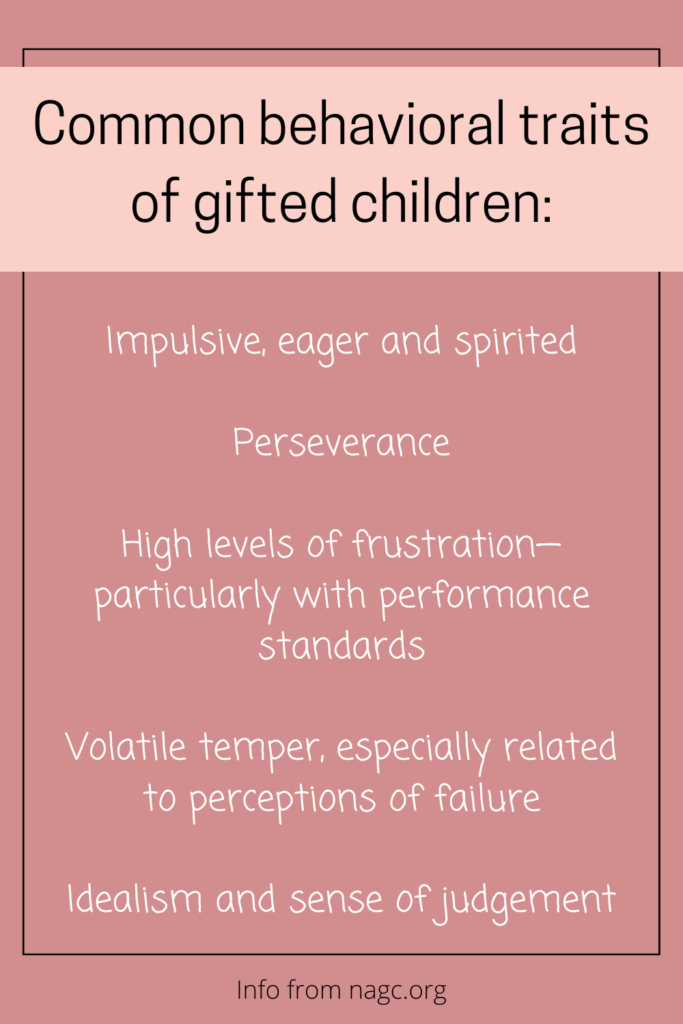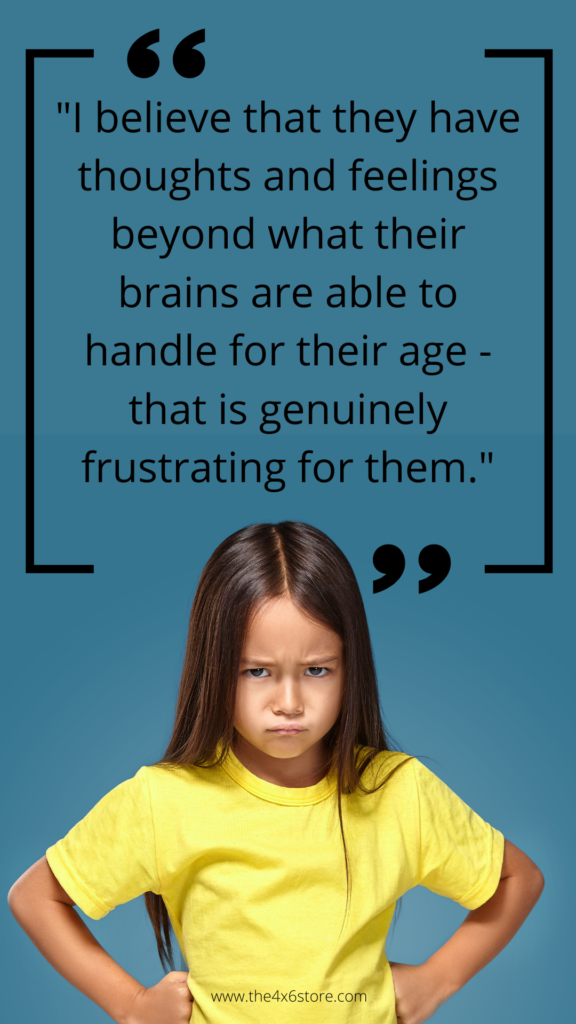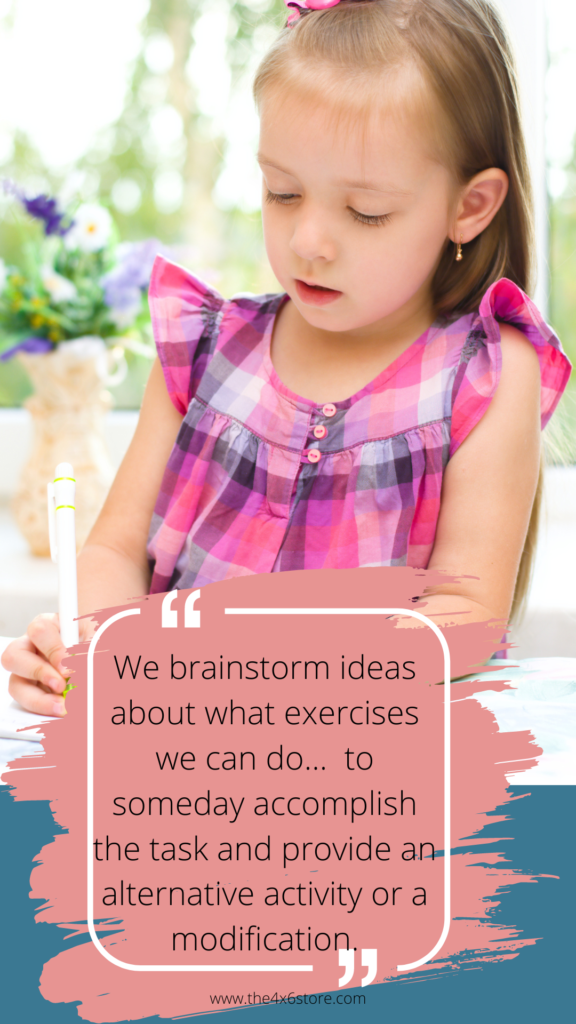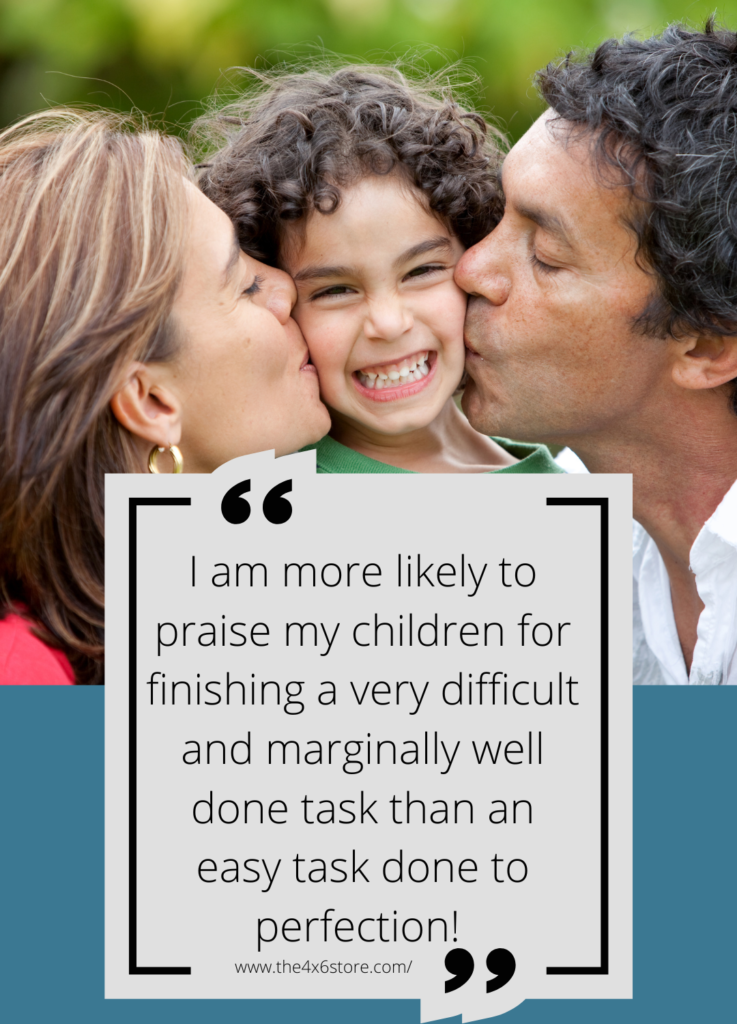Gifted Traits in Children: Behavioral Part 1
I’m frustrated – because he’s frustrated – that HE’s frustrated because gravity just isn’t working the way he wants it to!! Sound familiar? Such is the life of handling different gifted traits in children.
There are many different behaviors associated with gifted children. This post will outline only just a few experiences of some of the behavioral traits my boys exhibited, or still exhibit, that are common in the gifted. I feel like I had to break this into two posts – there was just too much to say. This post just scratches the surface. And remember not all gifted people have the same traits – even within families! So just because my gifted children act this way, doesn’t mean they all do!
Listed is a partial list of common behavioral traits in gifted students. In this case, some of the more frustrating behaviors that can leave parents pulling their hair out!

High Level of Frustration When Not Meeting Standards of Performance
I could simply state that ^ This. Is. My. Life. (I have never been evaluated for giftedness myself. However, some of these traits are 100% me, too. If you could only be inside my brain writing these blog posts. I get easily frustrated that they don’t turn out the way I see them in my brain…. Perfectionism runs rampant in our house.)
I live with children who set extremely high standards and crumble when those standards cannot be met. (Ok, so everyone in our family struggles with this one.) Sometimes, these expectations exceed the laws of physics – but they are DETERMINED to defy physics or bust. And when they hit “bust”… they bust, too! They get frustrated with the task and quit. When other kids would attempt the same task over and over again, my kids rage quit. And it has been hard for me to teach them that just quitting when something is difficult isn’t really the optimal solution.

Imagine this situation: a child is sitting and playing with dominoes. Dominoes are tricky, right? Challenging by nature. They can make any kid (or grownup) cry. With my kids, when an accidental topple happens, things go from complacent to rage throwing dominoes pretty quickly around here. (And since the Great Topple of June 28th, the dominoes have been for creating imaginary Zelda levels – not for stacking and toppling.)
Which really is a great transition to…
Volatile Temper – Especially with Failure
Doors slamming, objects flying, and loud voices are at my house *constantly.* I don’t believe my children are full of rage and anger. I believe that they have thoughts and feelings beyond what their brains are able to compute and handle for their age – that is genuinely frustrating for them! They see something that should work or be acceptable, but for some reason, it isn’t. Being able to try to see their behavior from that perspective has been very helpful for me as a parent.

Questioning Parental/Authority Figure
It is especially helpful in circumstances where they question my authority as a parent. Gifted children often want to know the in’s and out’s of “Why is this wrong?” “Why is this the rule?” “What happens when the rule is broken?” “What about Joe who doesn’t follow this rule?” “What happens in this scenario? Would have I have to follow the rules then?” *Sigh* It’s just where their little justice seeking minds go! I have found that asking them the reflect on the “Why” with you to be helpful!
Developmental Limitations
Some primary examples of failure are mentioned above, so I am going to focus on some other areas that produce anger and frustration. My 5 year old often has large fits over tasks he simply does not have the manual dexterity to perform because of where he is in his development. But his brain can’t reckon with that sometimes and he struggles to accept the help or modifications he needs to finish the task. This has been a particular struggle with handwriting and drawing during the preschool years, but also involves other fine motor skills like stacking.
Desire for Justice
My oldest is almost ten years old and has an incredible sense of needing everything to be exactly even. The desire for justice is strong – but that’s another post! He also, in his mind, will set a to-do list or list of activities to participate in for the day – sometimes not even running it by me. (Like that one time he handed out birthday invitations to all of his friends in his kindergarten class to a party I knew absolutely nothing about!) When his expectations are not met to the T – his whole world falls apart, the tears flow and doors slam…
So, how do I help prevent a few of these meltdowns? And how do I walk them through these “Big Feelings?”
Problem Solving Strategies
I try to take time to help my kids analyze what type of problem they have run into. Is this a small problem that they can solve themselves? A medium problem that is going to require adult help or intervention? Or a BIG problem that is an emergency and requires a big reaction? It can be hard in the moment to determine problem size. We do a lot of “what if” scenarios while they are calm. This helps them learn what the different sized problems are when their minds are clear. Even though, in the moment, the problem at hand seems like a big problem, they are usually able to realize that their reaction was probably not the most appropriate. We work on reaction size vs problem size every. single. day.

Task Modification
When we run into issues of physical coordination abilities not matching their desired level, I honestly just dive into a lesson on childhood development. We talk about how the brain and our bodies develop and sometimes we have to practice a lot to develop the right muscles and neural networks to be able to do the skill we want to do. We brainstorm ideas on what exercises we can do to be able to someday accomplish the task, and provide an alternative activity or a modification. (It sounds all Mary Poppins on paper, but it is hit and miss on calming the frustration levels. Sometimes the best route is just to express empathy that they can’t accomplish the task they want to and let them figure out what their next step needs to be.)
Time to Anticipate the Next Activity
I have learned to give my kids more of a heads up when we are doing something out of the ordinary – like going to the grocery store. I try to give the best time estimate I have when plans need to change so they can put down anything they are working on and prepare their plans accordingly. When expectations (like “But Mom, I planned a movie night for tonight” but I have evening plans) are not met, I try to interject before the meltdown begins, “But may I offer you an alternative choice of _____” or “Can we discuss together a better time to do this that works for both of us?”
Being able to help control the big feelings has improved with time and mindfulness to the challenge/frustrations they face being gifted. Age and maturity has also helped immensely.
I want to leave this post on a positive trait. Because gifted kids are AMAZING despite some of the challenges they present.
Perseverance – Strong Determination in Areas of Importance
With all of the quitting, door slamming that happens at our house, there is an equal amount of perseverance. When my second has a task that he has set out to do, there is no stopping him. When my oldest was attempting to master math facts, he independently studied to make sure he passed his timed tests.
Taekwondo has been the best activity to teach and reinforce this concept, too. It has been a safe space for them to practice “showing up” even when they don’t want to. It has taught them goal setting, the need for respect and control, and many other awesome qualities. Highly recommend it. (My oldest has been convinced he will grow up and be the boss of all the Ninjas since he was 5. Perhaps it will help him in that pursuit.)

We always try to point out when our kids have persevered. Everyone appreciates knowing that they can do hard things! Working through the frustrations and big feelings on a daily basis shows perseverance! And I let my kids know that! I am more likely to praise my children for finishing a very difficult and marginally well done task than an easy task done to perfection!
Last Thoughts…
These gifted traits in children are just a few pieces of the puzzle for determining if your child is gifted. They best resource for assessing giftedness is to reach out to your child’s teacher or other educational professionals. I can only relate my personal experiences to you.
Categories for this blogpost were pulled from the National Association for Gifted Children’s website. The experiences and interpretations of these categories in this blog are my own. If you have questions about your own child’s giftedness and abilities, please visit their website. Or discuss with your learner’s school or medical professional. Contains retail links. I am not affiliated with NAGC.
